- Home
- slideshows
- miscellaneous
- This fisherman risks his life to catch the world's most elusive, notorious underwater creatures - here's what he's caught
This fisherman risks his life to catch the world's most elusive, notorious underwater creatures - here's what he's caught
Fishing for Nile perch is a dangerous game. The fish can grow up to 300 pounds and like to congregate in deep pools in front of waterfalls, like the Murchison Falls in Uganda.

Coetzee and the boat's captain trailed the perch into calmer waters — but that, he said, is where the crocodiles hang out.
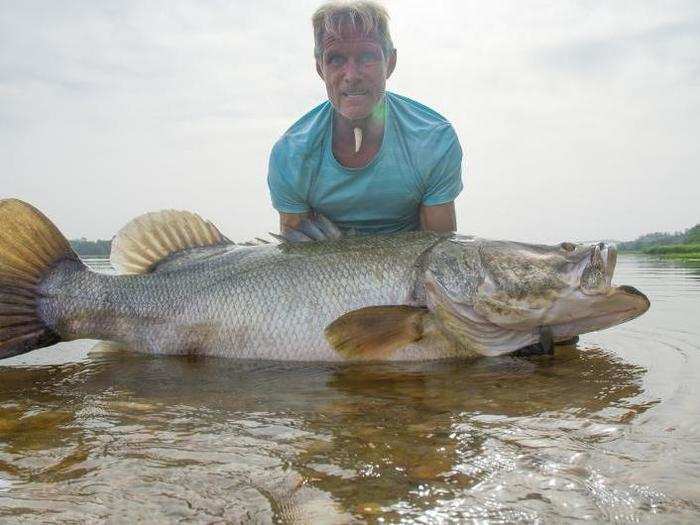
"Crocodiles' main food source is fish," Coetzee said. "And so to a 10-foot, or 12-foot, or even 18-foot crocodile, the Nile Perch is worthwhile eating."
He described one particular instance in which a crocodile came after a fish he'd hooked.
"I wasn't going to let that crocodile get the fish — it was me against the crocodile, in a sense," he said.
Crocodiles, though menacing, are a good sign that fish might be around.
"Where crocodiles are hanging out, that's a sign that there's high fish density," Coetzee said. "So it's gotta be a good place to fish."
Even once Coetzee had hooked a massive Nile perch — which he'd been fighting for hours — he said he was worried a crocodile could still sneak up on him.
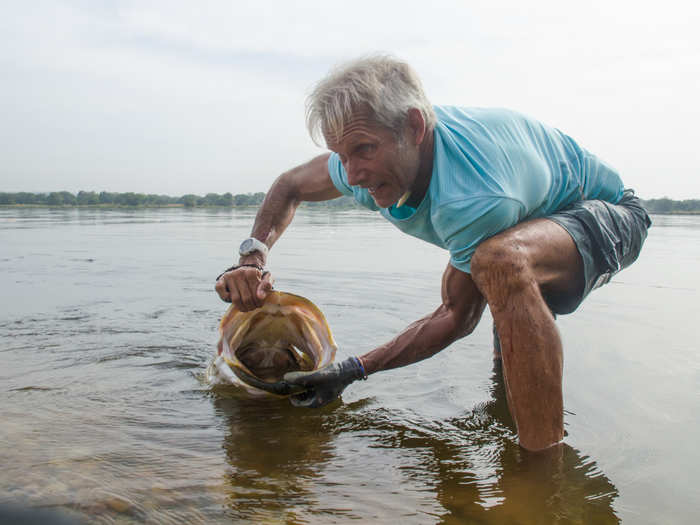
"I've got my back to the water, I'm tired, I'm talking to the camera, what am I supposed to do?" Coetzee said. "I might get bitten, but you know, oh well, you only live once."
When fishing on the Victoria River, hippos are actually more of a threat to humans than crocodiles, Coetzee said.
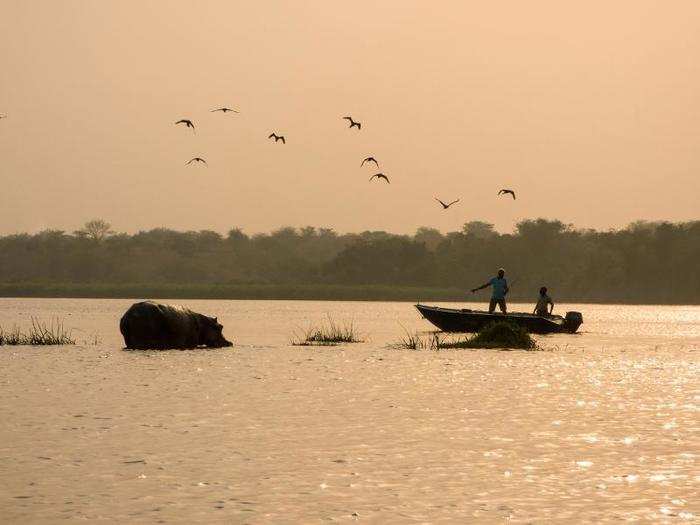
Nile perch, Coetzee explained, feed on small fish that eat the hippos' excrement. After the hippos feed on plants and grasses on the river's shore, they come into the water to defecate. A host of fish feed on that detritus, and the perch hunt those fish.
But fishing near hippos presented a unique challenge for the crew.
"If you look throughout Africa, more people die from hippos than crocodiles," Coetzee said. "They're a huge threat."
But to Coetzee, contending with crocodiles, hippos, waterfalls, and even elephants is what makes fishing wonderful.
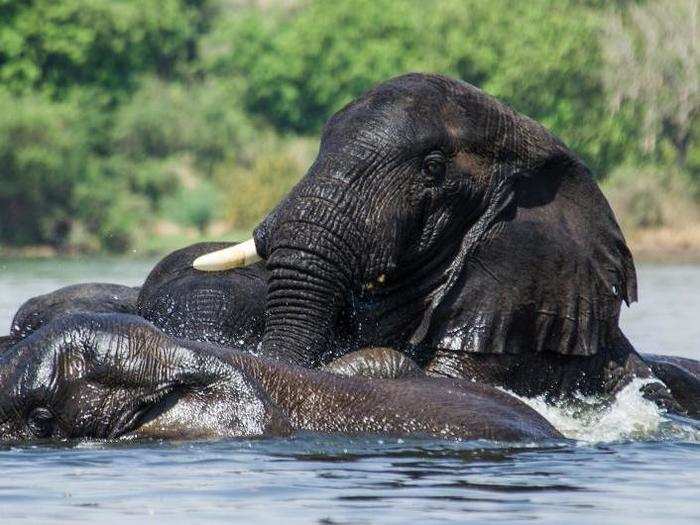
"I love doing it — that's what gets my blood going. That's what I get up in the morning to do," he said. "I don't want to sit behind a computer screen, I'd much rather face hippos and crocodiles. Fishing near these elephants, it's romantic and it's exciting."
Coetzee also travels to the Seychelles islands in pursuit of dogtooth tuna.
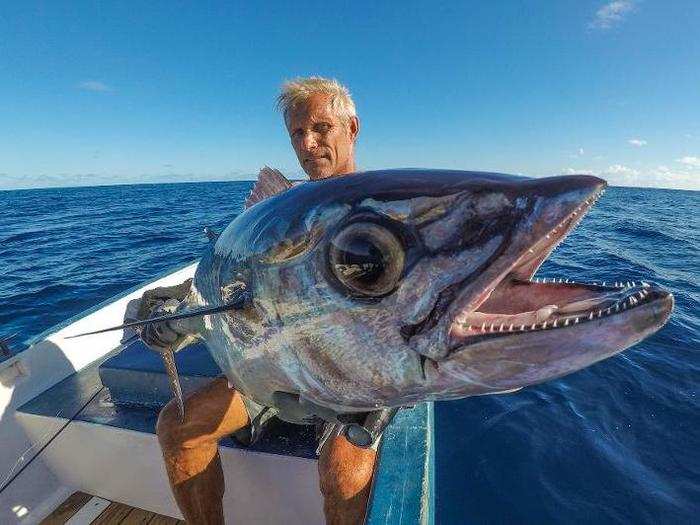
Dogtooth tuna are aggressive, powerful predators that hunt in the areas where coral reefs plunge into the depths of the ocean.
The fish is a "mean, eating machine," Coetzee said.
"I'm trying to get into the fish's head," Coetzee said. "I want to understand these predators, to decode their thinking."
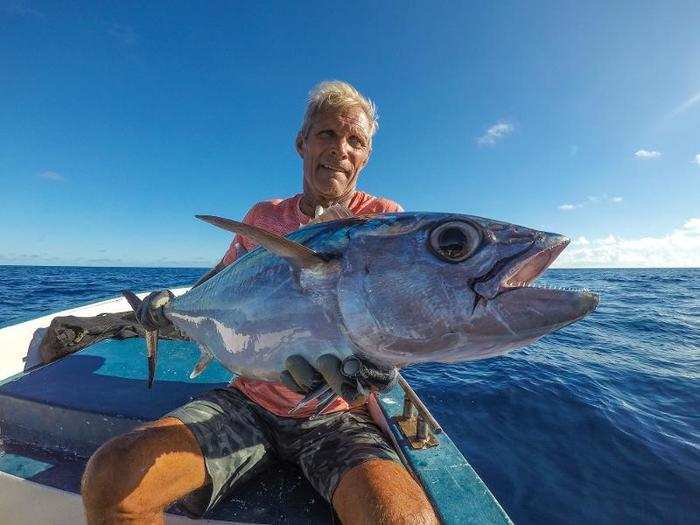
To hunt the tuna, Coetzee said he tries to follow the fish's prey to unlock the tuna's "predator response."
The Guinean barracuda, which inhabits the murky waters off the coast of West Africa, present a totally different challenge.
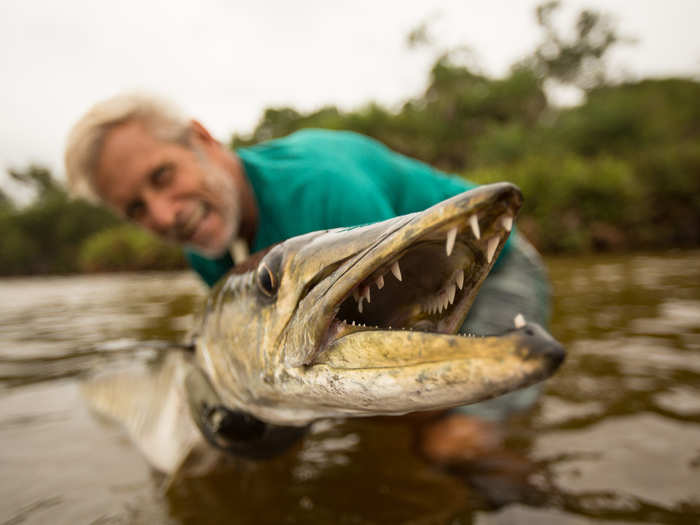
"I'm swimming around in these murky waters, over oil rigs, and these barracuda can literally rip your arm clean off," Coetzee said of his fishing experience.
The barracuda can grow over 6 feet long and weigh over 100 pounds.
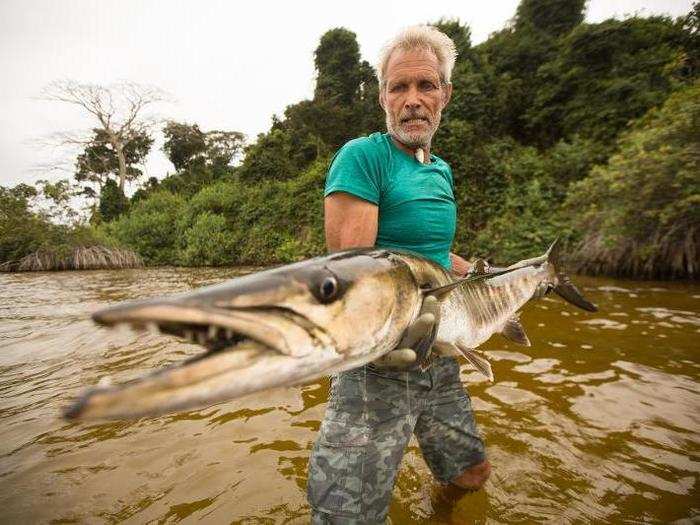
"The water is so dark and eerie," Coetzee said of its habitat.
Beyond Coetzee's bravado, he's an ecologist at heart. Catching these rare predators gives him a unique window into a fish's biology, physiology, and behavior.
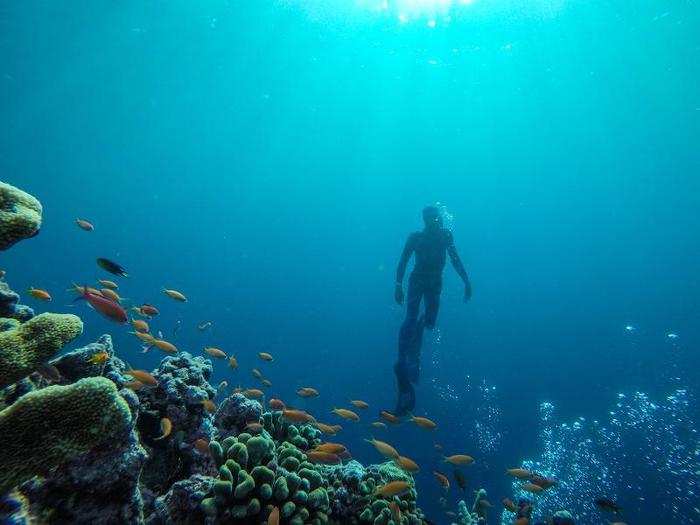
"We don't hurt them. We put them back so they can reproduce, and future generations will have the opportunity to fish them," Coetzee said. "That's in essence what I want to get through. The conservation and preservation of our fish stocks worldwide."
Popular Right Now
Advertisement